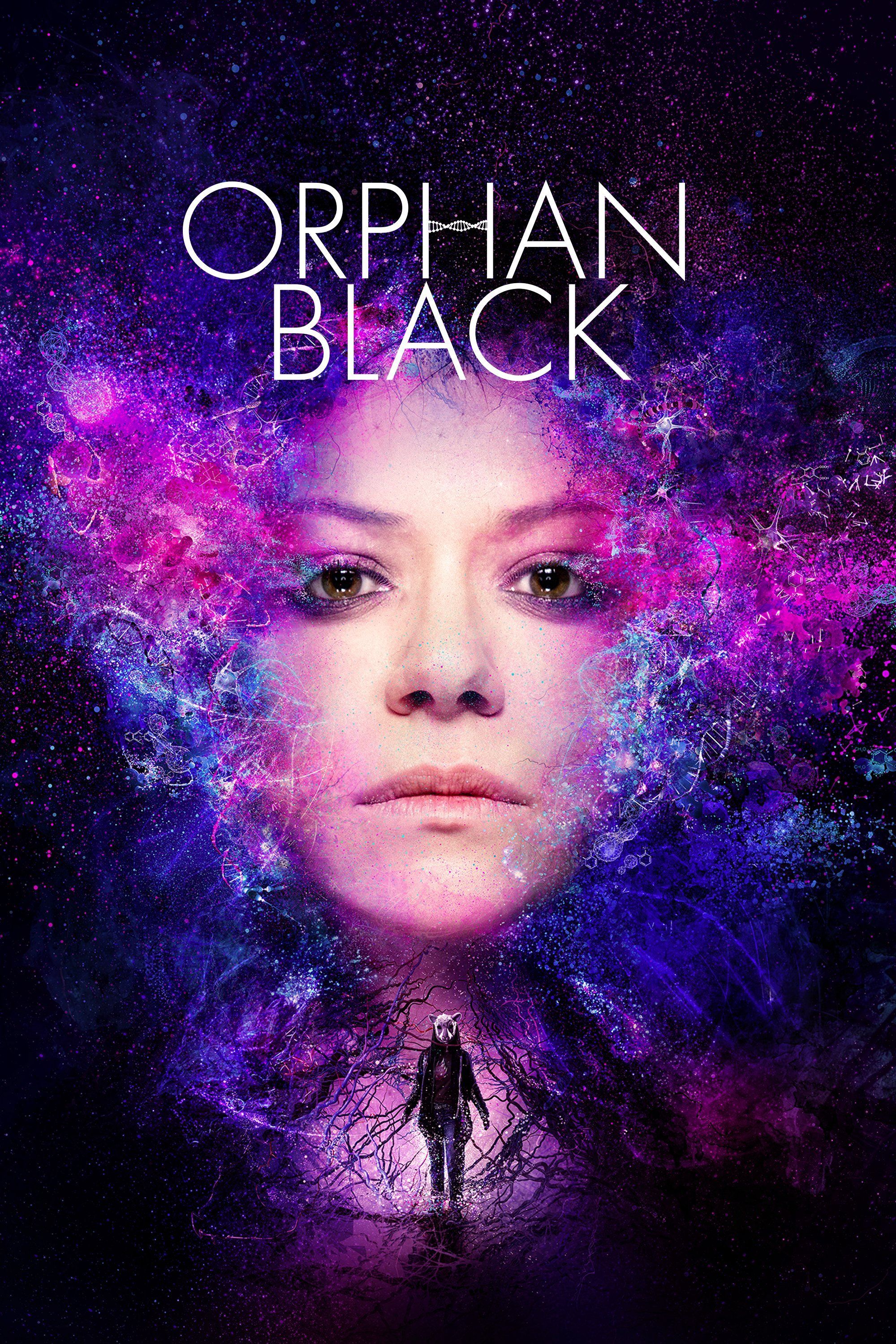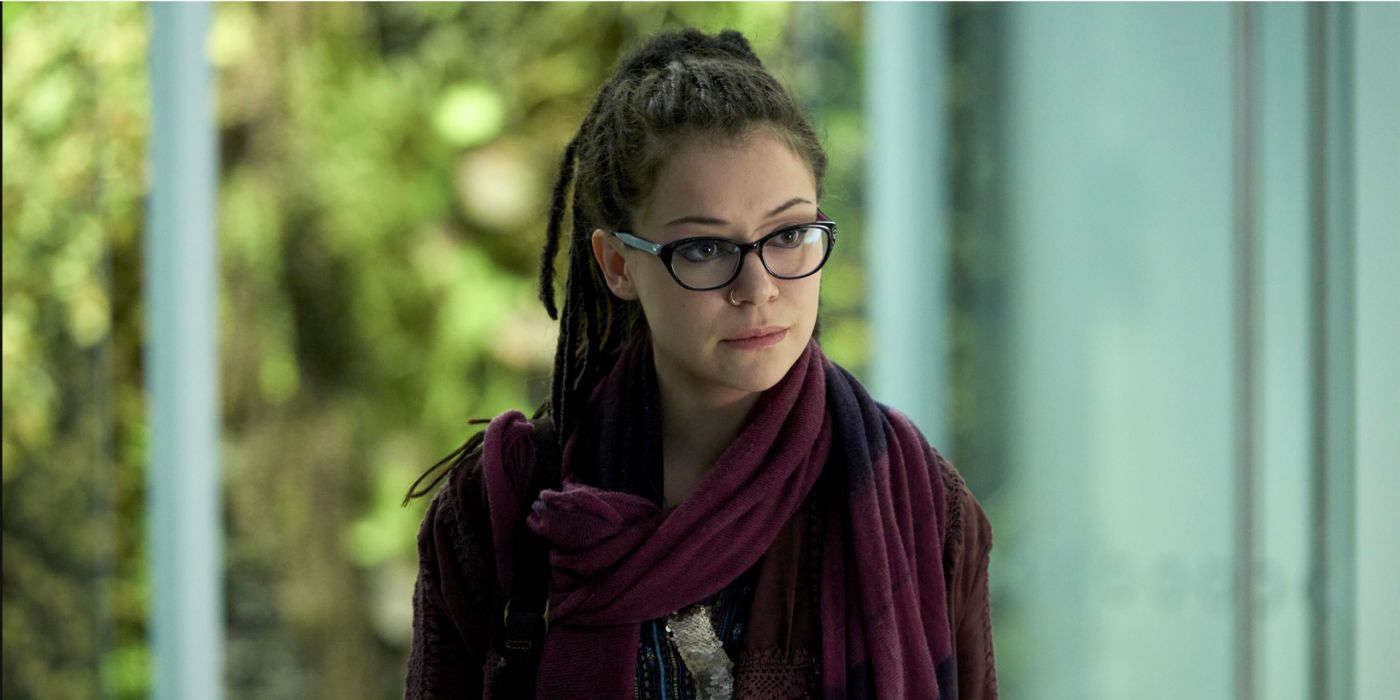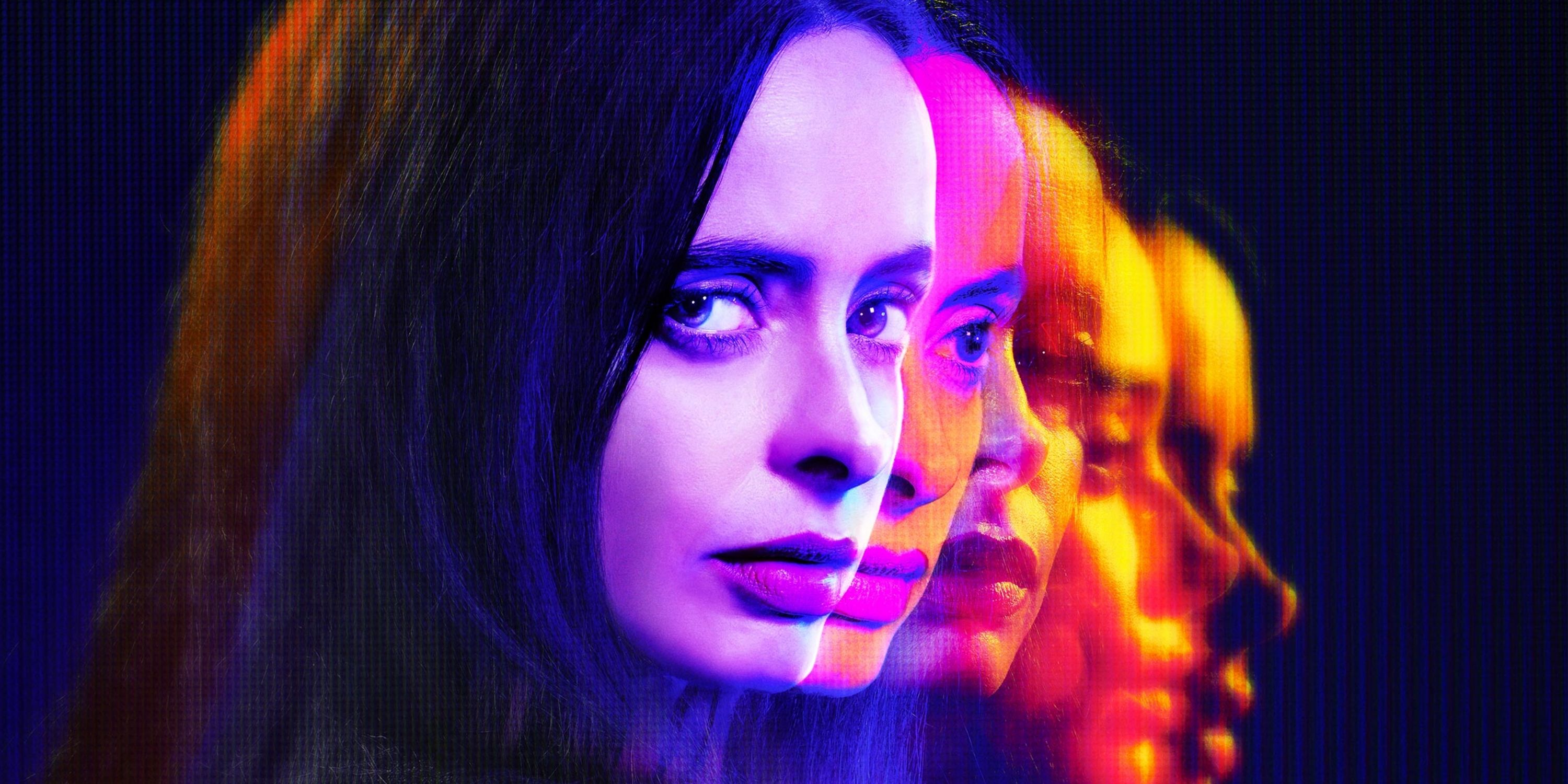Imagine that you’re walking home one day and stumble upon someone who is your exact double. Now, imagine that you learn a shadowy corporation has made more copies of you, as part of a grand experiment to direct the course of human evolution. That’s the premise of Orphan Black, BBC America’s smash hit science fiction series. Over a decade after its premiere, Orphan Black remains a must-watch for all sci-fi fans. Not only is it the series that catapulted Tatiana Maslany into stardom, but it also features a plot that will keep you hooked throughout its five-season run. But what specifically makes Orphan Black such a great watch?
‘Orphan Black’ Crafted a Compelling Story Full of Clones, Conspiracies, & the Odd Identity Crisis
Orphan Black kicks off when grifter Sarah Manning, played by Maslany, witnesses a woman named Beth Childs — who’s a dead ringer for her, physically — commit suicide. Sarah ends up taking on Beth’s identity and starts running into her other clones. There’s Alison Hendrix, a housewife struggling to keep a grip on her life; Rachel Duncan, a high-ranking executive at the Dyad Instititue, the same organization that launched the cloning project; Cosima Niehaus, a PHD student; and Helena, an assassin trained to kill her fellow clones. Orphan Black slowly unfurls these developments, keeping the audience hooked while also giving the characters enough space to develop. Sarah doesn’t find out she’s a clone until the Season 1 episode “Variation Under Nature”, which also introduces Helena. In a day and age where TV shows tend to drag their feet when it comes to unfurling the plot or hurling through it at warp speed, it’s a relief to watch a series that knows when exactly to swing for the fences.
The existence of clones isn’t the only major development that Orphan Black creators Graeme Mason and John Fawcett throw at the viewers. Over time, the series deals with the idea of evolution, and how people fear it or try to control it. The Leda Institute is carrying out its cloning program by following a scientific process known as Neolution, in an attempt to direct the course of human evolution; on the other hand, the cult known as the Proletheans views the clones as an affront to God, with a splinter movement having trained Helena to kill her “sisters”. The ideas of faith and science converge with the series’ biggest plot twist: while most of the clones are sterile, Sarah can concieve, and her daughter Kira (Skyler Wexler) becomes the newest target of the Leda Institute and the Proletheans. This also ups the stakes significantly — before, Sarah only had to fight for herself, but now she has to fight for her daughter.
Tatiana Maslany’s Various Performances Make ‘Orphan Black’ a Must-Watch Series
It’s no secret that Orphan Black wouldn’t have worked as well as it did without Tatiana Maslany. Maslany’s performances makes each of the clones feel like distinct characters, and her ability to switch between them is uncanny. Whether it’s Alison’s uptight nature, Rachel’s cold cunning, or Helena’s quiet menace, you’ll always get something different when one or more of these characters interact. And the fun of Orphan Black is that Maslany gets the chance to play even more clones, including nail technician Krystal Goderitch and Pupok the scorpion. Yes, there’s an episode of this series where its star also voices a scorpion (though that’s less to do with any sci-fi elements and more with the fact that Helena is undergoing hallucinations). In interviews, Maslany dug deep into the work that went into separating the clones as characters, including dance and music as well as her double Kathryn Alexandre:
“She memorizes all of the lines, all of my blocking, all of her blocking, my mannerisms, my impulses; she, somehow, memorizes all of that and gives it back to me with a performance I can play off of.”
Throughout Orphan Black‘s run, a major discussion among fans and critics alike was whether Maslany would receive an Emmy nomination. In 2014, around the time that Season 2 finished airing, she was snubbed for a nomination for Outstanding Lead Actress — and viewers were quick to point out how unfair this was, given that she was pulling off some incredible performances week after week. Maslany was eventually nominated the following year, and finally won the award for Outstanding Lead Actress in 2016 right as Orphan Black hit its stride. She’s continued to have a steady presence in genre fare, scoring voice roles in Invincible and Guillermo del Toro‘s Trollhunters franchise, alongside She-Hulk: Attorney at Law. Maslany wasn’t the only genre alum in Orphan Black‘s cast as Michael Mando (Better Call Saul), Michiel Huisman (Game of Thrones) and Simu Liu (Shang-Chi and the Legend of the Ten Rings).
The Success of ‘Orphan Black’ Led to an Entire Franchise
Orphan Black gained a small but steady fanbase called the “Clone Club” during its run, named after the collection of clones that served as the series’ main characters. It came at a time when fans of television and movies were utilizing social media as a way to stay connected, and the BBC took advantage of that by actually engaging in the conversation with fan fiction, fan edits, and even referencing fan lingo in episodes of Orphan Black. Then-president of BBC America Sarah Barnett even addressed the importance of Orphan Black‘s fanbase, telling The New York Times: “It sounds like common behavior now, but it was actually fairly radical in 2013… You came to realize that you can’t control this. You have to really understand it and embrace it.” While fandom has sadly swung in the opposite direction, the BBC’s embrace of Orphan Black‘s fanbase was a large factor in making it a standout show.
Even after it went off the air, Orphan Black continued to inspire stories set in its world. IDW Publishing launched a comic book series written by Graeme Mason and John Fawcett in 2015, while Maslany would return to voice all of her characters in the audio drama Orphan Black: The Next Chapter. AMC even attempted to launch a continuation with Orphan Black: Echoes, this time featuring Krysten Ritter in the lead, but it lacked the same momentum and was canceled after a single season. The original Orphan Black still remains a compelling, well-crafted sci-fi series that deserves to be in conversation with other series like Doctor Who and Star Trek.
Orphan Black is available to stream on AMC+.


